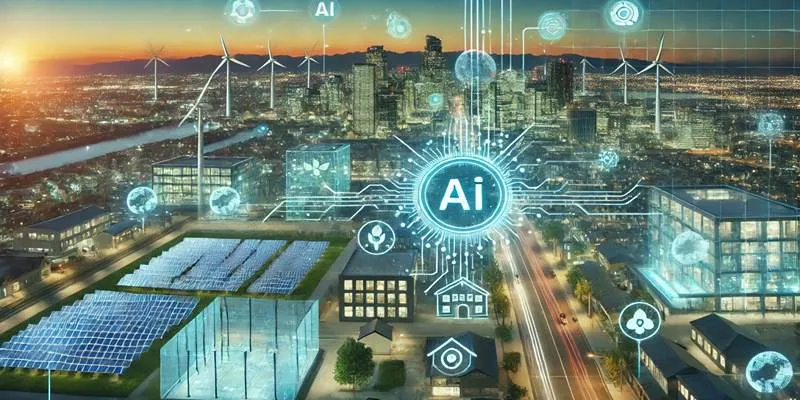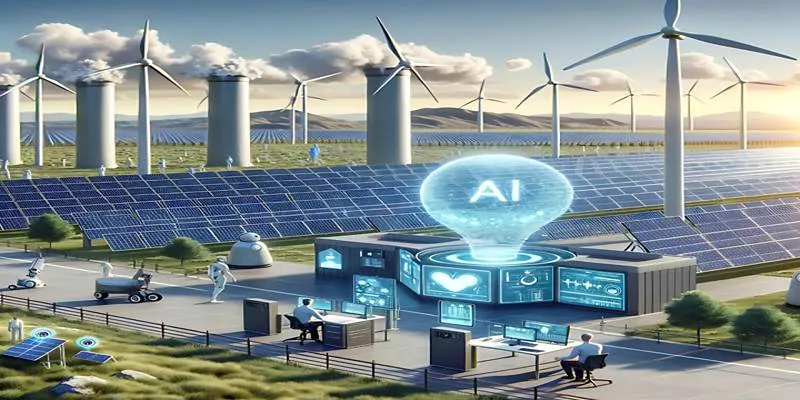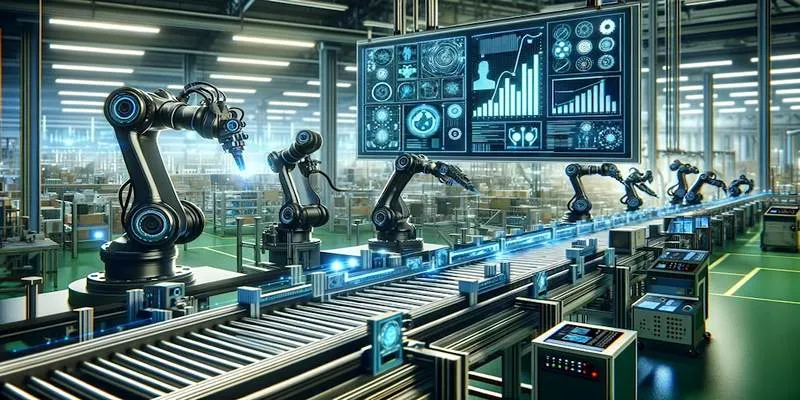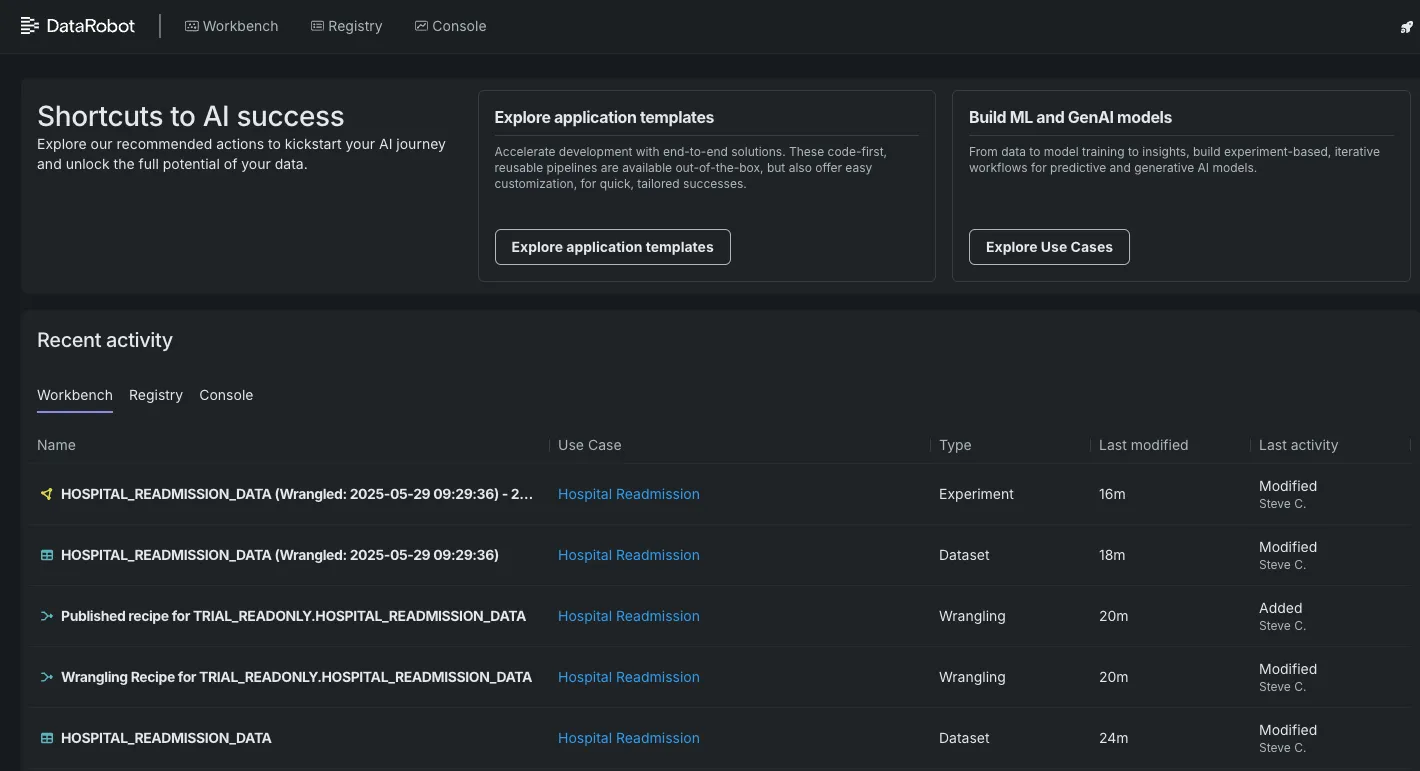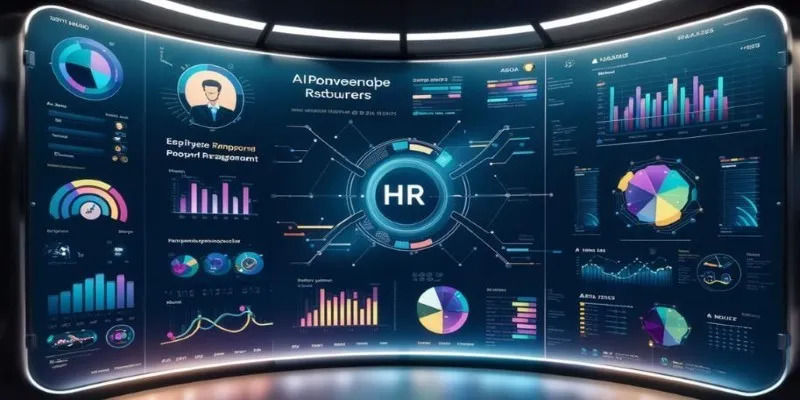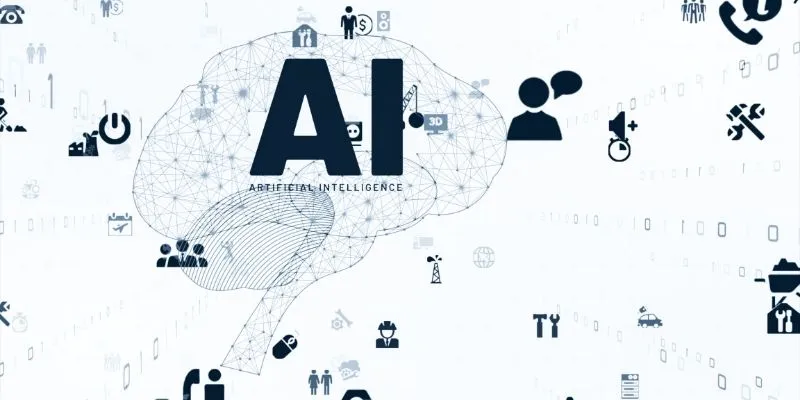Solar power is increasingly popular as the world transitions to cleaner and more sustainable energy sources. However, challenges such as unpredictable weather, dust on panels, and inefficiencies in systems persist. This is where Artificial Intelligence (AI) steps in, offering innovative solutions to enhance the performance, increase the output, and reduce the costs of solar energy systems. Let’s explore how AI is transforming the solar industry.
How AI Enhances Solar Energy System Efficiency
AI technology is pivotal in improving solar energy system efficiency. By leveraging advanced algorithms and data analysis, AI can manage solar panels more effectively than traditional methods.
Common AI applications in solar energy include:
- Predicting sunlight availability using weather data
- Automatically adjusting panels to capture maximum sunlight
- Monitoring equipment health and predicting failures
- Managing energy flow in homes and grids
- Scheduling cleanings based on panel dirt levels
Let’s delve deeper into how AI is utilized in these areas.
AI for Solar Forecasting and Weather Prediction
Cloudy or rainy days pose significant challenges for solar energy. AI analyzes weather data, satellite images, and historical solar patterns to forecast solar energy availability. This enables energy companies to plan and manage energy supply effectively. Both consumers and businesses can benefit from knowing when their solar panels will produce more or less energy.
Key benefits of AI-powered forecasting:
- Improved accuracy in energy predictions
- Better energy storage planning
- Smoother integration with the power grid
Optimizing Solar Panel Angle and Tracking
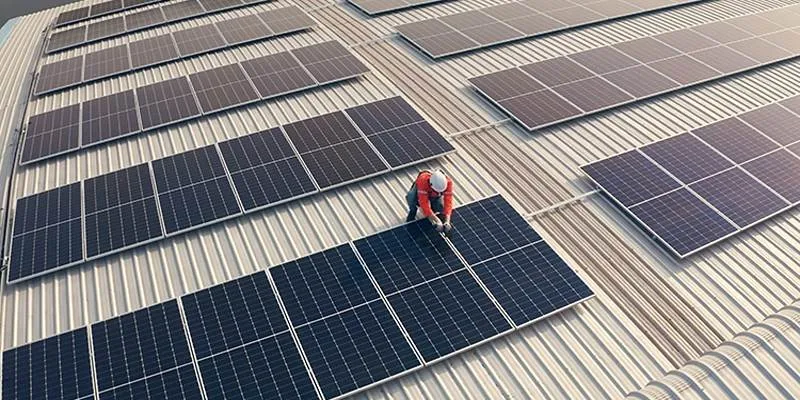
AI systems control solar tracking devices that adjust panels to follow the sun’s path. These devices use AI to determine the optimal angles for panels throughout the day. Even minor adjustments in panel angles can significantly impact energy production. AI ensures that panels remain in the optimal position all day long.
Advantages of AI-based tracking systems:
- Maximized sunlight absorption
- Increased daily energy output
- Reduced human error in manual tracking
This leads to more energy generation without the need for additional panels.
Smart Maintenance and Fault Detection
Solar panels and equipment can develop issues or lose efficiency over time. Traditionally, these problems were detected only after a noticeable drop in performance. Now, AI-powered monitoring systems can identify issues early. They track panel temperature, power output, and other indicators to detect issues such as:
- Broken or underperforming panels
- Dust or dirt obstructing sunlight
- Wiring or connection failures
With AI, maintenance becomes:
- Predictive instead of reactive
- Faster and less expensive
- Based on real-time data
Managing Energy Storage and Usage
Solar energy production doesn’t always align with energy usage. AI helps balance this by managing when and how to store solar power in batteries or send it to the grid. AI learns your household or facility’s energy habits and adjusts power flow automatically. For instance, it may store energy during the day and use it at night when the sun is down.
Smart energy management helps:
- Avoid power waste
- Cut electricity bills
- Improve battery life and efficiency
This is particularly beneficial in areas where energy costs fluctuate throughout the day.
Automated Cleaning for Better Panel Performance
Dust, bird droppings, and pollution can block sunlight and reduce panel efficiency. Regular panel cleaning is essential but can be time-consuming and costly. Some companies now use AI to determine when panels need cleaning. Sensors assess dirt levels, and AI decides the optimal cleaning time. This approach saves water, money, and effort.
AI-based cleaning schedules offer:
- Less frequent but more effective cleaning
- Higher energy efficiency
- Reduced manual labor and maintenance costs
Even this straightforward application can lead to significant energy gains over time.
Real-Life Examples of AI in Solar Energy

The use of AI in solar energy is no longer experimental—it’s already transforming the industry worldwide.
Examples include:
- Google’s DeepMind uses AI to forecast solar and wind energy output, enhancing decision-making for energy supply.
- Tesla’s AI-enabled Powerwall monitors energy usage and adjusts battery operations automatically.
- Indian solar farms deploy AI-powered drones to inspect panels and identify faults quickly.
- Smart cities in Europe integrate AI-managed solar systems into public infrastructure for reliable green energy.
These real-life examples highlight the tangible benefits AI brings to solar energy systems across residential, commercial, and industrial sectors.
Why This Matters for the Environment and Economy
AI doesn’t just enhance solar energy efficiency—it benefits the planet. By making solar systems more reliable and effective, AI promotes wider adoption of clean energy.
Environmental and economic benefits include:
- Lower carbon emissions
- Reduced electricity costs
- More stable and efficient energy systems
- Better return on investment for solar users
In summary, AI is helping make solar energy a smarter, cleaner, and more affordable option for the future.
Conclusion
Artificial Intelligence is unlocking the full potential of solar energy by making systems more intelligent, adaptive, and efficient. From panel optimization and performance monitoring to smart storage and predictive maintenance, AI is overcoming many of the limitations traditionally associated with solar power. By improving both the output and efficiency of solar energy systems, AI is driving a new era of clean, dependable, and affordable power. As the world continues to shift toward sustainable energy solutions, AI will play a crucial role in making solar power smarter and more accessible for all.
 zfn9
zfn9
